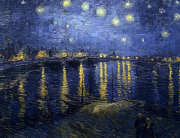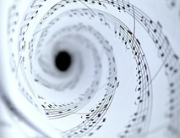Many of your religious theologies and psychological approaches are predicated on the notion that you must become the blank tablet. The Buddhist would speak of non-investment; Christianity would speak of sacrifice. Theologically and philosophically this is an odd concoction of seemingly contradictory beliefs, and its subtle implication is that you are not good enough to receive what you wish to attain.
It would seem that humanity’s journey of growth, be it spiritual, physical or emotional, begins in a crossroads position to where you ultimately wish to be. Yet the universal acceptance of the concept of emptying yourself in order to grow must hold some validity. When you surrender, sacrifice, release or become un-invested, you allow consciousness/spirit to have access, without reservation, to all aspects of yourself to recreate your reality and fulfill your desires.
To empty yourself and be un-invested is to release the physical, emotional, mental and even spiritual attachments that can hinder you from your highest good. To become the blank tablet, the open page of a book to be written upon, is not casting off or discarding the various aspects of your life, but rather willingly placing them in the hands of a higher consciousness to be rearranged in a different way than you might from your ego conscious perception.
Emptying yourself, divesting yourself is not a loss; rather potentiality and possibilities are made available in direct proportion to your willingness to release those things to which you are attached.
 It is a curiosity and an element of the nature of humanity to hold tightly to what is known. You feel a sense of security and well-being when your life is stable, predictable, and consistent. Ironically, the opposite is true. Consciousness and creation are a dynamic force, ever evolving and changing, but always for the highest good of those participating in it. Surrender is dependent on your trust of this fact. Everything in consciousness, in creation and in your life is in movement. Investments and attachments are like taking a bucket and filling it with water from a flowing river. In time, as you consume the water, it becomes depleted, stale and warm, while a few steps away the cool fresh water of the river flows abundantly by you.
It is a curiosity and an element of the nature of humanity to hold tightly to what is known. You feel a sense of security and well-being when your life is stable, predictable, and consistent. Ironically, the opposite is true. Consciousness and creation are a dynamic force, ever evolving and changing, but always for the highest good of those participating in it. Surrender is dependent on your trust of this fact. Everything in consciousness, in creation and in your life is in movement. Investments and attachments are like taking a bucket and filling it with water from a flowing river. In time, as you consume the water, it becomes depleted, stale and warm, while a few steps away the cool fresh water of the river flows abundantly by you.
The act of surrender, divestment and release is not a statement of not being good enough; rather, it is a confirmation that what you released is complete.
Drink deeply from the bucket of the present moment, and let it go. Surrender, divestment, and release are a validation of your willingness to acknowledge what is and receive what is yet to come. It not only creates the space for the new; it makes you a receptacle for what you desire. The more you give, the more you receive. The more you release, the more you obtain. The more you divest, the more you possess.
Be not a hoarder of the gifts of consciousness and creation, but rather a good steward who uses them wisely. Have no attachments or investments to the outcome of your life, and you will have everything you desire.
Be cautious, that does not mean sell your home, put on sackcloth and walk through the desert. What it does say is possess your life—all that is in it—and place every desire, every fear, and every dream upon the altar of release and relinquishment.







Leave A Comment